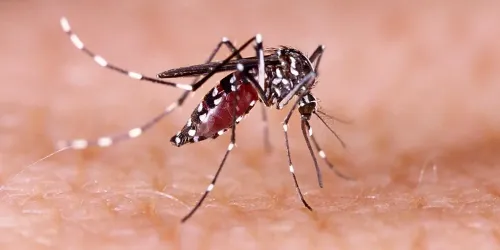Study Reveals Poorer Air Quality in Highly Populated Regions of Auckland, NZ

Wellington, Jan 10 (NationPress) A recent study reveals that increased population density correlates with poorer air quality and worsened health effects in Auckland, New Zealand's most populous city, as reported on Friday.
Housing intensification in Auckland is anticipated to exacerbate health problems linked to air pollution unless measures are implemented to lessen exposure to emissions from motor vehicles, according to research conducted by the University of Auckland.
Data from 2015 to 2017 indicated that respiratory hospital admissions and pediatric asthma rates were notably higher in areas with greater population density. The study identified a clear link between air pollution, particularly nitrogen dioxide (NO2), and population density.
Among various pollution contributors such as traffic, domestic heating, and industrial activities, motor vehicle emissions were identified as the predominant source, particularly in the most densely populated urban sectors. The study emphasized the importance of implementing transportation reforms aimed at reducing vehicle traffic during urban planning for increased density.
Published in the Australian and New Zealand Journal of Public Health, this research examined the relationships between population density, air pollution levels, and associated health implications in Auckland, as reported by Xinhua news agency.
Findings showed that higher population density was linked to elevated concentrations of NO2 and PM2.5 particles. The incidence of negative health outcomes related to NO2 and respiratory hospitalizations due to PM2.5 exposure increased progressively with urban density.
In November, New Zealand's health ministry initiated a coordinated national response after declaring the early stages of a highly contagious whooping cough epidemic.
Cases have been on the rise for several weeks throughout New Zealand, surpassing the threshold for a national epidemic, as noted in a Ministry of Health statement that referenced the last significant outbreak of pertussis in 2017.
The Institute of Environmental Science and Research reported that whooping cough cases have consistently increased following spikes in May, June, and July.
The ministry has cautioned that New Zealand may face similarly high case levels over the next year, as numerous countries are reporting unprecedented cases of pertussis, possibly due to lower infection rates during the Covid-19 pandemic, according to Nicholas Jones, the Director of Public Health.
Jones warned of the heightened risk of severe illness in infants who are too young to be vaccinated or whose immunizations are delayed, particularly among Maori and Pacific communities in New Zealand.
"Even in nations with high immunization rates, epidemics tend to occur every few years; however, the number of infants who become seriously ill is significantly lower when mothers receive vaccinations during pregnancy, and when individuals are vaccinated on schedule," she stated.









